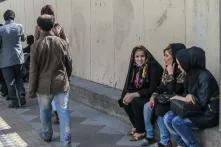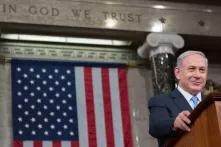
Donald Trump bears much responsibility for the growing tensions between the United States and Iran. In response to the aggressive, destabilising regional role of Iran, Trump withdrew from the nuclear deal with the country despite resistance of all other parties to the agreement. Since then, the US have adopted a policy of tightened economic sanctions against Iran, aiming to put it under such a stranglehold that it will be prepared to consider a new, more comprehensive deal. This maximum-pressure policy has had a strong effect on the Iranian economy. However, it has not led to Iranian willingness for dialogue. Instead, Iran has tried to put the US under pressure in return, with regional escalatory steps, culminating in a US drone being shot down at the end of June. This is also due to the fact that no realistic and credible offer has been put forth by the United States for a political way out that takes into account the interests of Iran and other regional actors. Rather, there have been prominent voices in the US government advocating regime change in Iran, which will make any negotiations even harder.
At the same time, Donald Trump has repeatedly stated that he is not seeking a military escalation. He is concerned about his re-election and is aware that there is no appetite for war among the vast majority of the US population. 18 years since the beginning of the Afghanistan war and 16 years after the start of the Iraq war, both of which are now widely seen as failures, there is very little public support in the US for another war in the Middle East.
Who would benefit from an escalation?
Within Washington, however, there are also a few influential figures who see benefits in a further escalation. These include neoconservatives such as the National Security Adviser, John Bolton. They see the situation as a historical opportunity to weaken America’s arch enemy and rearrange the region according to the American interest. Additionally, there are actors who are concerned that if action is not taken now, Iran could end up with nuclear weapons in the foreseeable future, which would be an existential threat to Israel. And finally, some believe that Iran’s escalations should not go unanswered lest this embolden the country to even greater audacity.
It is therefore entirely possible that the mutual logic of maximum pressure on the other party, responding to every escalation with a counter-escalation and a lack of political exit options or diplomatic skill will bring the crisis to a head, up to and including all-out military conflict. This would have catastrophic humanitarian and political consequences for the entire region, including the EU as an immediate neighbour, for the global energy markets and for the transatlantic partnership. Because if it comes to war, the US could hardly count on European support.
How can military escalation be prevented?
In autumn 2020, the US presidential and congressional elections will take place. Almost every Democratic presidential candidate has declared that should they win, the US will sign back up to the nuclear deal with Iran. Should the Democrats win, should the international parties to the nuclear deal keep it afloat until then, and should the situation not escalate militarily by then, there could be a new attempt at a political solution. The EU should work as hard as it can towards this.
But that is all a long way off and none of those conditions are a given. Preventing a war depends primarily on the next steps taken by the current Iranian and American governments. In the case of the US, this will hinge mainly on Donald Trump weighing whether the electoral benefits of a US military withdrawal from the region are more important than his image as a tough guy showing no weakness and retaliating every blow with a counter-blow.
Will the situation continue to intensify?
Donald Trump’s rejection of military retaliation in response to the Iranians shooting down a US drone shows that he has no immediate interest in a military escalation. The problem, however, is firstly the capriciousness and unpredictability of the President, whose decisions can change from day to day, depending on his mood and the prevailing commentary in the right-wing media. Secondly, a mutual logic of escalation and counter-escalation can develop its own momentum up to and including war, even if this is not what either side wants. And thirdly, developments depend largely on the calculations of the Iranian leaders. This is what makes the situation so volatile and unpredictable.


